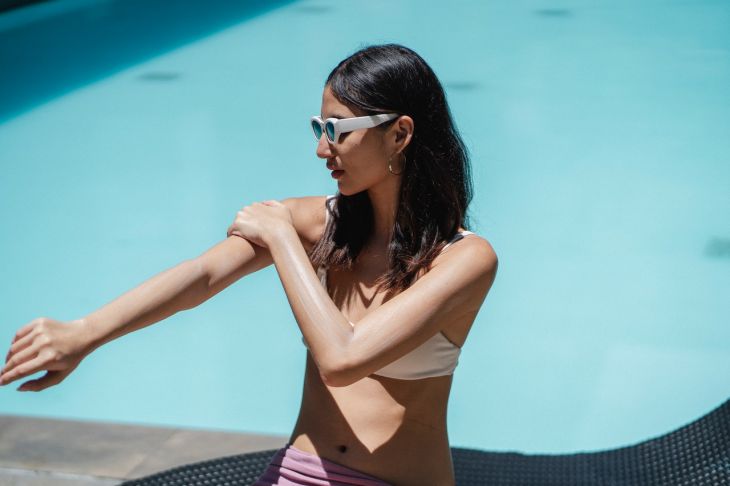
As temperatures rise across the country, many of us are taking advantage of our free time by heading to the pool or the beach. Sunscreen is a must-have for protecting our skin and avoiding sunburn, but there are a lot of questions about how much is enough. We need to make sure we're purchasing the right sunscreen. Why do we still get sunburns despite using sunscreen, and how can this typically minor but painful skin irritation best be treated?
SPF 30 Is The Holy Grail For Sunscreen
The fact that I don't get sunburned isn't a deterrent for me, but I always look for the highest SPF possible in sunscreen because I believe that the greater and longer the SPF, the greater and more effective the protection. This isn't how it works at all, in my opinion.
It's true that there's a difference between SPFs, but that difference gets smaller as the SPF gets higher. An SPF of 2 blocks only about 50 percent of harmful light, while SPF 15 blocks 93 percent, SPF 30 blocks 97 percent and SPF 70 blocks 98.5 percent of harmful light. When it comes to sunscreen, most dermatologists agree that SPF 30 is the magic number.
SPF ratings over 30 can be argued to be less effective than the magic SPF 30 because people tend to use them less and apply them less frequently. This is most definitely the case for myself. In contrast, I treat my expensive SPF 110 like a precious, all-powerful potion, slathering it sparingly on my face only once a day because it's more affordable (and because I've previously believed it to be less effective). When used insufficiently, higher SPFs have been shown to have the same effects as lower SPFs. Oops. It's time to reapply, even if I've already used up my SPF 110.
How much and when to apply
Regardless of the SPF, sunscreens should be reapplied every two hours at the very least. Higher SPF sunscreens do not always last longer. The most important thing is to apply enough sunscreen (about a shot glass full) to cover the entire body. The SPF 30 sunscreen may only provide SPF 15 protection if used incorrectly.
If you spend a lot of time in the water or playing sports, you may need to reapply more frequently. Take a break from strenuous activity to cool down and reapply sunscreen. Drink plenty of water both before and after you go out in the sun, and apply your first layer of sunscreen the day before you plan on going out so that it has time to dry and absorb.
Regardless, I got burned! Why?
On the other hand, despite applying liberal amounts of sunscreen, my pale fiancé gets lobster-red skin after a day in the sun. Why? It all comes down to how skin types have changed over time. You see, I got the fair Mexican skin of my mother, whereas my fiancé, who is 100 percent Irish, got the fair Irish skin. In some cases, darker skinned people are more tolerant of the outside world. Although they aren't immune to cancer by any means, they have more melanocytes in their skin, which are protective skin cells.
Tips for Healing A Burn
There are four things you'll need to quickly heal a sunburn:
- Water (to drink)
- A cold shower or bath
- Drugs to reduce inflammation
- A calming cream can also be used topically.
You must remember that you have a superficial burn, so you must rehydrate. You must rehydrate both from the inside and the outside. While it's important to stay hydrated, it's also important to do so in a cool, shaded location.
Soak in a cold tub when you get back home. Taking a cool shower can also be helpful. The goal is to reduce the temperature of the skin. After that, we have the anti-inflammatory ingredient. A mild anti-inflammatory, like Motrin, can be extremely beneficial in relieving the pain and discomfort caused by a sunburn. Treating the skin itself is a final step.
Any areas where blisters have formed or skin has peeled benefit from the use of topical creams and ointments that contain few or no ingredients. As a general rule, topical anti-itch medications should be avoided because they may cause an allergic skin reaction that worsens the symptoms. Using a sterile needle and gentle pressure, gently drain any blisters that have formed. In order to protect the injured skin beneath, it is best to leave the blister's roof in place.






